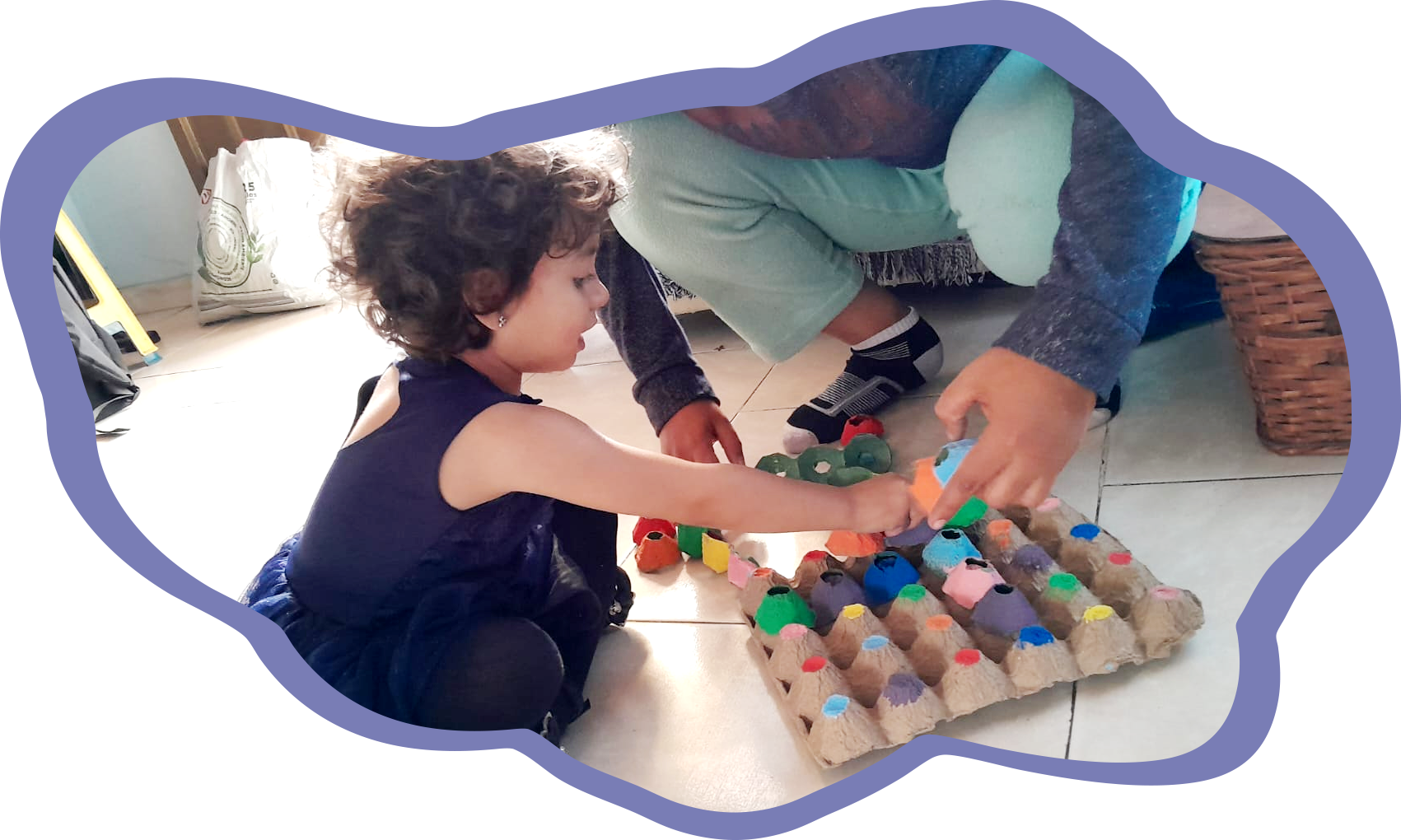Research
From Evidence to Action: Research that Transforms Lives

Research
From Evidence to Action: Research that Transforms Lives

Project History: Led by Two U.S. Universities
Key Findings and Results from Research in Rwanda and Colombia
According to Rwandan research, this program is effective in improving parenting, the nutritional and health status of children, better hygiene practices, and reducing perceptions of severe punishment and violence.
In addition to improving family relationships, the program has also improved caregiver-child relationships. A key result of the program has been a change in the way decision-making is shared between families. Involvement of parents has increased in families. Symptoms of depression and anxiety among caregivers, as well as irritability among children, also improved. Self-esteem and perseverance have improved among caregivers. The children have demonstrated improvements in their gross motor skills, communication, problem-solving abilities, and personal-social skills.
In 2023, together with the families and the community, we adapted what was built in Rwanda to meet the specific needs of our families in Colombia. Focus groups with families were conducted, community meetings were held, experts consulted, partial program trials were conducted, and a full program pilot test with 16 families with two caregivers was conducted.
Almost the first steps from Rwanda have been taken with the completion of our adaptation phase!
Preliminary Results of the First Phase
- The accessibility of the program: caregivers felt heard and safe.
- Caregivers were satisfied, content, and supported by Community Agents.
- Improvements and new learnings in family dynamics (managing emotions, communicating effectively, maintaining good hygiene, and eating healthy).
- Interactions with children that provide new learnings and positive experiences (early child development, communication, and entertainment).
- Caregivers found the topics relevant and the explanations easy to understand.
Following practice throughout the program, caregivers shared their learnings with family members, friends, and neighbors.
During the year 2024, we implemented the program with 40 families, including single parents, and are still reviewing the results.
Family-based prevention of mental health problems in children affected by HIV and AIDS: an open trial.
The objective of this study is to assess the feasibility and acceptability of an intervention to reduce mental health problems and bolster resilience among children living in households affected by caregiver HIV in Rwanda.
Integrating social protection and early childhood development: open trial of a family home-visiting intervention, Sugira Muryango. Early Child Development and Care.
This study was funded by a grant from the World Bank Early Learning Partnership (ELP). The findings, interpretations, and conclusions expressed in this paper are entirely those of the authors.
Family-based prevention of mental health problems in children affected by HIV and AIDS: an open trial.
The objective of this study is to assess the feasibility and acceptability of an intervention to reduce mental health problems and bolster resilience among children living in households affected by caregiver HIV in Rwanda.
Integrating social protection and early childhood development: open trial of a family home-visiting intervention, Sugira Muryango. Early Child Development and Care.
This study was funded by a grant from the World Bank Early Learning Partnership (ELP). The findings, interpretations, and conclusions expressed in this paper are entirely those of the authors.
Promoting parent-child relationships and preventing violence via home-visiting: a pre-post cluster randomised trial among Rwandan families linked to social protection programmes.
Sugira Muryango is a father-engaged early child development and violence-prevention home-visiting programme delivered by trained lay workers.
Effect of a home-visiting parenting program to promote early childhood development and prevent violence: a cluster-randomized trial in Rwanda.
Families living in extreme poverty require interventions to support early-childhood development (ECD) due to broad risks.

Caminando con Amor promotes family strengthening and early childhood development in Colombia. Building safe and loving environments, supporting holistic health, and fostering community well-being are all part of our work. Join us on our journey toward a future filled with love and hope!
Menu
Contact
caminandoconamor.co@gmail.com

Caminando con Amor promotes family strengthening and early childhood development in Colombia. Building safe and loving environments, supporting holistic health, and fostering community well-being are all part of our work. Join us on our journey toward a future filled with love and hope!
